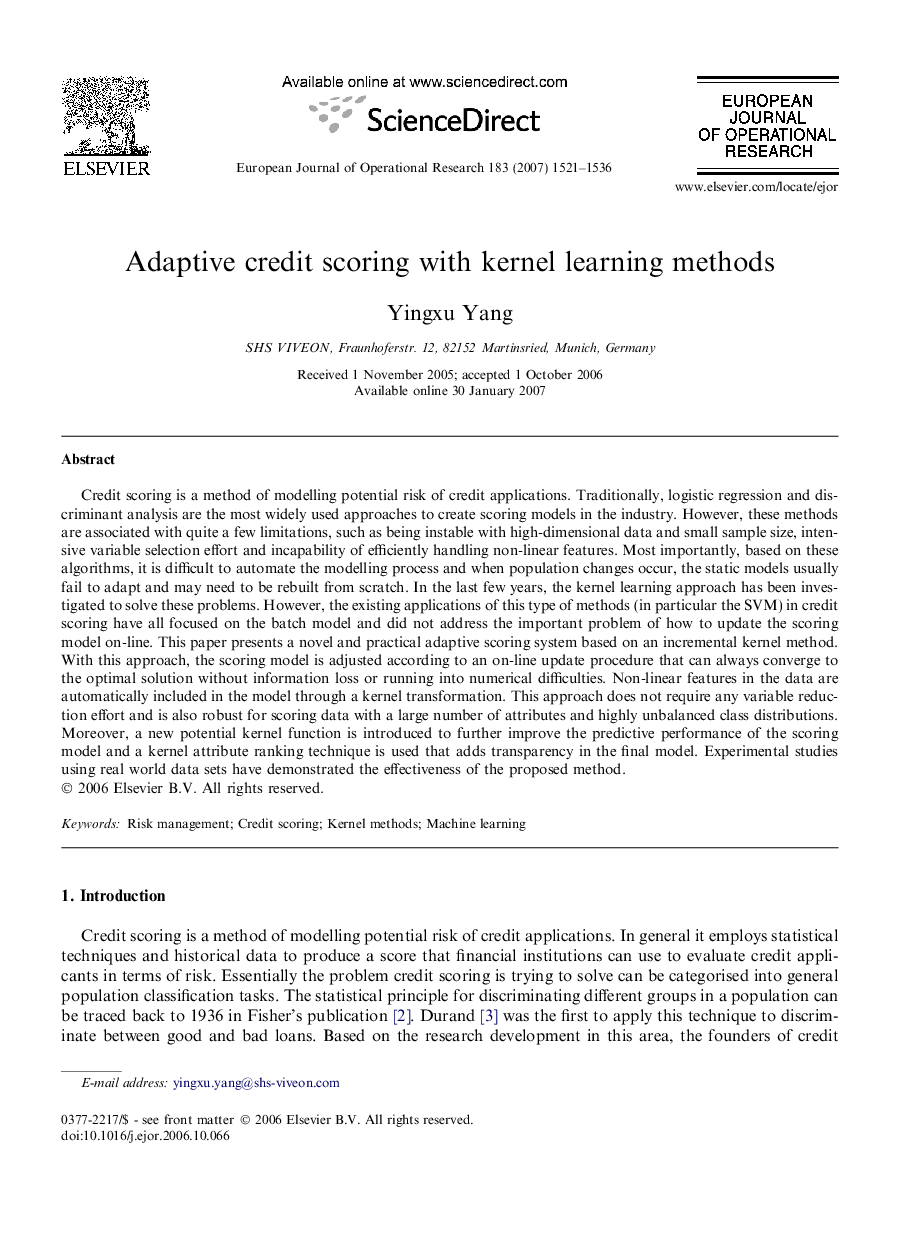| Article ID | Journal | Published Year | Pages | File Type |
|---|---|---|---|---|
| 481832 | European Journal of Operational Research | 2007 | 16 Pages |
Credit scoring is a method of modelling potential risk of credit applications. Traditionally, logistic regression and discriminant analysis are the most widely used approaches to create scoring models in the industry. However, these methods are associated with quite a few limitations, such as being instable with high-dimensional data and small sample size, intensive variable selection effort and incapability of efficiently handling non-linear features. Most importantly, based on these algorithms, it is difficult to automate the modelling process and when population changes occur, the static models usually fail to adapt and may need to be rebuilt from scratch. In the last few years, the kernel learning approach has been investigated to solve these problems. However, the existing applications of this type of methods (in particular the SVM) in credit scoring have all focused on the batch model and did not address the important problem of how to update the scoring model on-line. This paper presents a novel and practical adaptive scoring system based on an incremental kernel method. With this approach, the scoring model is adjusted according to an on-line update procedure that can always converge to the optimal solution without information loss or running into numerical difficulties. Non-linear features in the data are automatically included in the model through a kernel transformation. This approach does not require any variable reduction effort and is also robust for scoring data with a large number of attributes and highly unbalanced class distributions. Moreover, a new potential kernel function is introduced to further improve the predictive performance of the scoring model and a kernel attribute ranking technique is used that adds transparency in the final model. Experimental studies using real world data sets have demonstrated the effectiveness of the proposed method.
